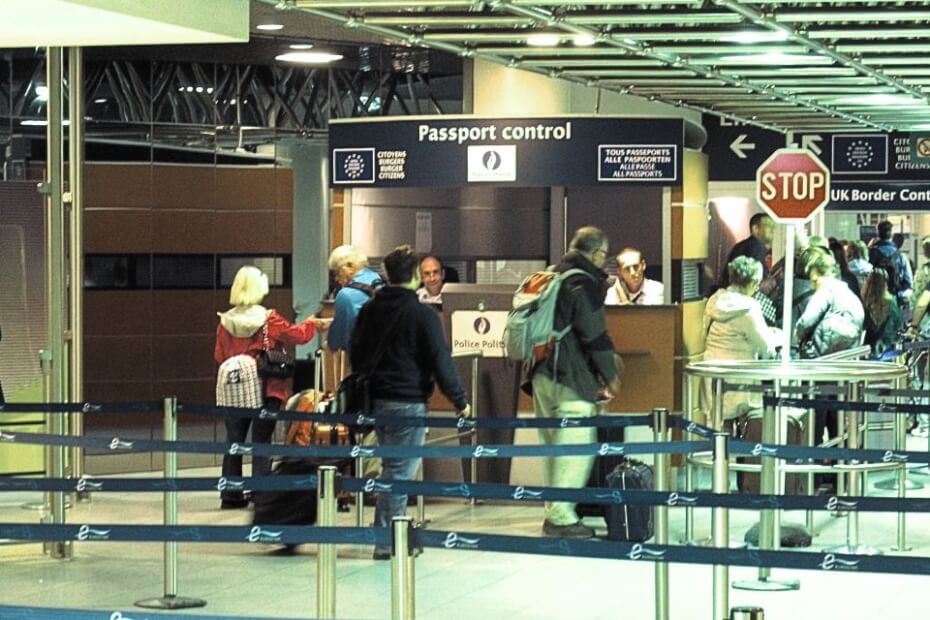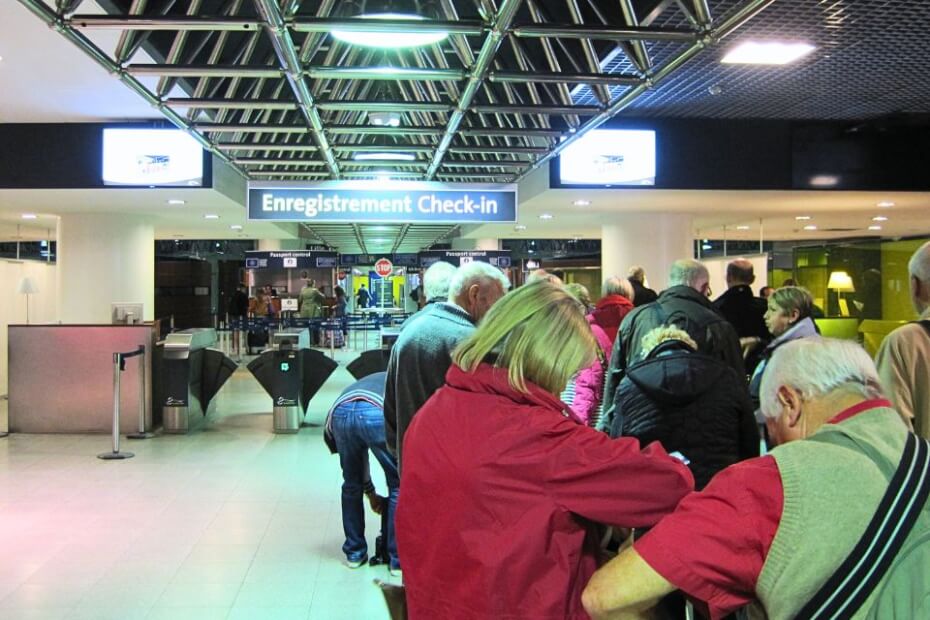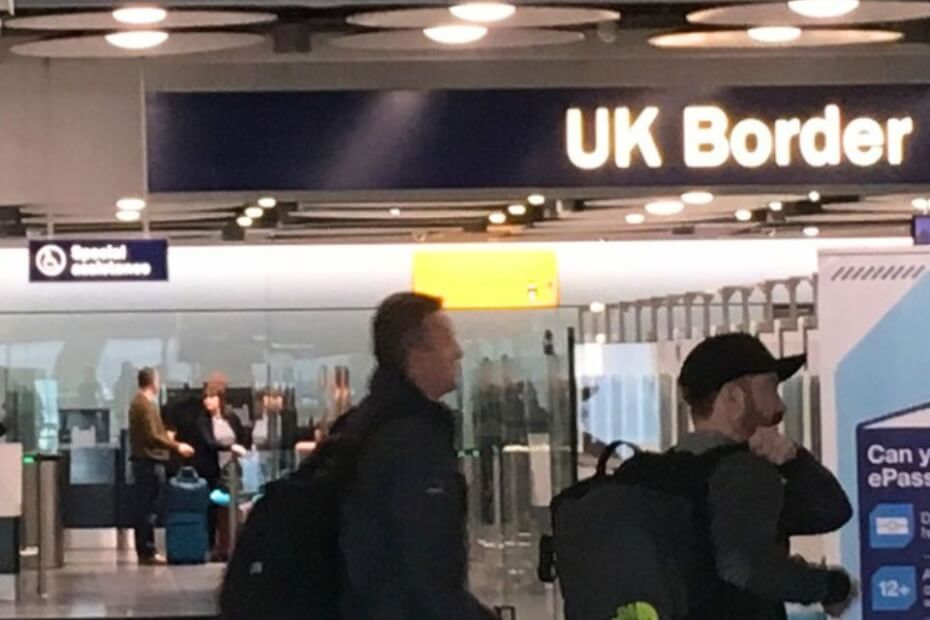
Industry leaders in the United Kingdom (UK) urge the government to reconsider the launch timeline for its new Electronic Travel Authorization (ETA).
The ETA and the European Union’s (EU’s) Entry/Exit System (EES) could significantly impact frequent travelers between the UK and the EU.
They warn that simultaneously introducing the ETA and the EES could lead to major travel challenges and delays.
These new systems could lead to lengthy delays, confusion, and potential congestion at busy border checkpoints.
Eurostar’s chief strategic partnerships officer, Gareth Williams, spoke to the Lords’ Justice and Home Affairs Committee in October 2024.
“We’ve asked, can we not have two systems introduced at once,” he said, per a report by Euronews Travel.
The ETA and the EES
The UK’s ETA is a new system that requires non-visa travelers to apply online for pre-authorization before their trip.
The scheme aims to improve security by accurately logging travelers’ entry and exit and pre-screening them before they arrive.
The EU’s EES, on the other hand, will use biometric data to track non-EU visitors as they enter and exit the Schengen Area.
This means non-EU travelers, including British citizens, must register and submit fingerprints and facial scans at the border.
The EES system also aims to track the movement of non-EU citizens and residents more accurately, ensuring that they don’t overstay their 90-day limit.
Travel leaders fear that launching the two systems simultaneously in 2025 could cause long waits and confusion.
This could be especially worrisome for those navigating through the EES and ETA systems when crossing the UK-EU borders.
These include the Channel Tunnel, the Port of Dover, Eurostar‘s St. Pancras Station, and other major EU ports and airports.
Concerns about the simultaneous launch of the ETA and the EES
In 2025, several new border systems will be introduced, including interactive AI, ETA, EES, and the European Travel Information and Authorisation System (ETIAS).
“Our concern is the systems don’t join up,” he stated.
Williams explained that the systems “ask for very similar information through different channels.”
He added, “The more you require the same information, the less compliance you get.”
“We’ve asked the UK and EU to take a step back,” Williams said.
John Keefe, Director of Public Affairs at Getlink, echoed the same concerns about the potential strain on infrastructure.
“We need to avoid a scenario where we’re testing two new systems on the public all at once,” he told the UK House of Lords.

Impact on border crossings
Travel operators and border staff would need significant support to manage both the ETA and the EES.
Border infrastructure may require digital upgrades, and additional staff may be necessary to help travelers navigate the new requirements.
Nichola Mallon, Head of Trade and Devolved Policy at Logistics UK, noted that EES preparation was already an issue for transport businesses.
She added that the widespread ETA rollout could further complicate operations.
Mallon also said readiness should ensure that the IT system underpinning the EES should be robust.
She also included the availability of the EES mobile app, which could allow travelers to pre-register information for short queues.
The EES has yet to be tested in real-world scenarios, and its mobile app is still under development.
Impact on travelers
Frequent travelers or those unfamiliar with the two systems may find them confusing and require more assistance.
This could result in minor delays that may accumulate quickly, leading to missed connections, particularly during busy travel seasons.
Travel experts also warn of potential economic impacts if the ETA and the EES dual rollout discourages tourists and business travelers.
Many travelers may feel uncertain about the new requirements, and the added hassle could deter people from visiting the UK or the EU.
This could hurt the local European economies that are dependent on tourism.
Possible phased EES launch in 2025

Initially set to launch in 2022, the EES has faced multiple delays due to technical and logistical challenges.
The planned rollout date of 10 November has been postponed, with a phased rollout now anticipated in 2025.
European Commissioner for Home Affairs Ylva Johansson cited the unpreparedness of Member States.
France, Germany, and the Netherlands host the EU’s major airports and handle much of the EU’s international traffic.
The eu-LISA agency, responsible for the EU’s IT infrastructure, expressed concerns regarding the resilience of the system that stores EES data.
UK industry leaders view this delay as a chance to stagger ETA and EES implementations, easing the transition for travelers and border staff.
Instead of launching both systems at the same time, the EES could start with limited rollout points, gradually expanding across the EU.
Williams suggested a phased rollout where only five to ten percent of travelers would use the EES initially.
This approach would help identify and resolve technical issues in smaller, less trafficked locations before moving to busier sites.
Keefe said this gradual approach could prevent overwhelming infrastructure and resources and cause significant disruptions.
“A phased rollout could reduce pressure on major ports, giving staff time to adapt,” Keefe stressed.
ETA’s implementation timeline
Williams acknowledged that uncertainty in the EES launch complicates the UK Home Office’s planning if it were to delay the ETA rollout.
The ETA scheme started its phased launch in October 2023, when it became mandatory for Qatari nationals visiting the UK.
The rest of the Gulf Cooperation Council (GCC) states—Bahrain, Kuwait, Oman, Saudi Arabia, and the United Arab Emirates—started using the ETA scheme in February 2024.
The Home Office had already announced the more widespread rollout of the ETA scheme in 2025.
The system will start accepting applications from non-European, non-visa nationals beginning on 27 November 2024.
The digital permit will be mandatory for them beginning 8 January 2025.
By 2 April 2025, all non-visa travelers to the UK, including Europeans, must have an ETA before their trip.
European nationals can start applying for their ETAs on 5 March 2024.
The UK Government has not yet announced changes to the timeline, and the EU has yet to confirm an EES launch date in 2025.
Still, the concerns raised by Eurostar, Getlink, and Logistics UK highlight the importance of a well-planned transition.
For now, travelers are advised to keep an eye on official announcements about the ETA and EES and to prepare for changes in travel requirements.

